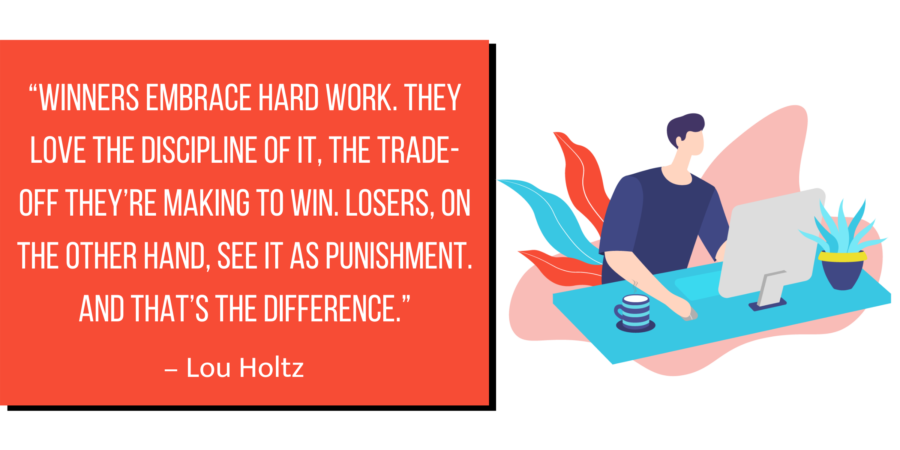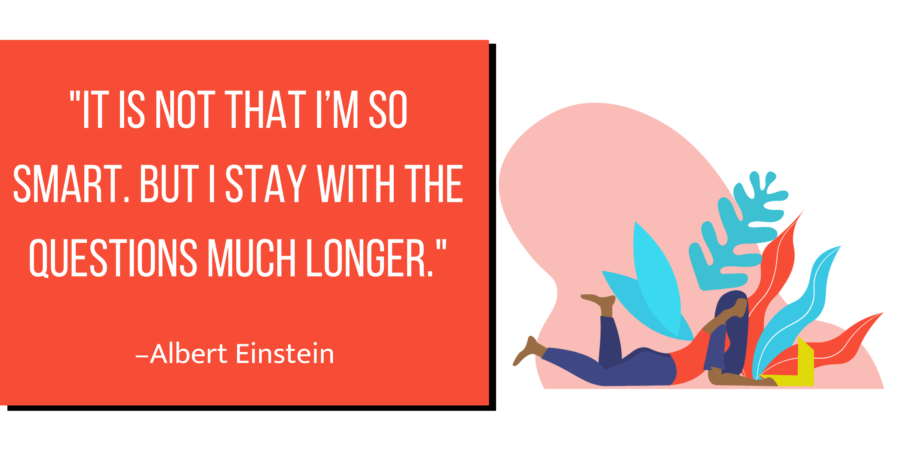
Maybe the above quote seems a bit harsh. Sure, don’t we all deserve a little downtime? The trouble is that the missing ingredient in any person’s success is hard work. Learning to study is essentially learning how to love hard work, and is a characteristic that you will be able to carry with you into all areas of your life. You can apply this skill to your work and to your personal ambitions. Essentially learning to study is learning about discipline and learning how you learn and how to learn efficiently. You’re teaching yourself how to work effectively to get the grades you need to succeed in school and outside of school.
Learning to Study through Self-Teaching
If you ready to learn how to study then why not just teach yourself? There are ample resources online that teach you how to create learning stimuli, demonstrate scientifically effective techniques on how to study and give you learning boosts through online courses that show you how to speed read, retain information and more.
Tips For Effective Study
Here are a few key tips to help you study more effectively:
- Space Out Your Studying
- Mix Up the Order of What You’re Studying
- Make Visuals
- Practice Retrieving Information
Check out this great video on how to study for more in-depth information on the above tips.
Make Effective Stimuli for When You Study
Some schools will provide links or premade flashcards to be used as study aids when you’re ready to go. While those study aids may be useful for some, premade stimuli that are tailored to the general population and not individualized are not going to be as effective as study aids for you and may not even be the best type of stimuli for your subject. For example, does your subject require a lot of rote memorization? Then flashcards are great for you. Does your subject require you learn about general concepts and apply them to create arguments? Then creating a mind map may be a better option.
If you’re teaching yourself how to study, then you may want to check the following sources for more inspiration on how to make stimuli to help you learn:
Not quite sure what kind of learner you truly are or what is the most effective? Then check out Study Guides and Strategies for a comprehensive look at you learn and ways to make effective study guides.
Stand Up and Move Around
Most people do better when their learning becomes active which is counterintuitive to the way to set ourselves up to learn. We sit down in silence using memory maps and mnemonic devices to memorize, but active learning may be just what you need to bring your personal study to the next level. Take a look at some fun ways to use active learning when you study.
- Write For an Audience
- Teach a Friend Your Material
- Add a Movement or Gesture to Help you Codify the Information
- Collaborate With a Peer While You Study
- Draw Your Own Visual Stimuli
- Roleplay With Yourself
It’s important to note that what you’re doing in the above examples is learning ways to make this process fun. If you’re having fun doing what you’re doing you’re going to return to the task and you’re likely to develop something that is truly unique for your own learning style.
Pros and Cons
Learning for yourself how you study is a worthy endeavor but may not be for everyone. If you are on the fence about whether or not you want to teach yourself this skill or obtain it from another source. Check out some pros and cons of self-study.
Pros
- You Go Through the Process Yourself
- Low Cost or Free
- Empowering
- A Skill You Can Translate For Life
Cons
- You May Be Struggling to Come Up With a Pattern Yourself
- Does Not Necessarily Lead to the Best Most Strategic Outcomes
- You Could Be Missing Out on the Latest and Greatest
Online resources like blogs and tutorials are another fantastic resource. Most of these blogs and tutorials provide advice or offerings for free or at a low cost:
- Study Right a Blog About Learning
- Study With Jess Youtube Channel
- An Inspirational Study Blog From an Academic Whizz
Learning to Study through Online Courses
Chances are if you’re interested in how to study that you’ll need some external guidance. You’re not alone. People make their way through life not entirely sure what is effective for them and live their lives frustrated with their lack of ability to recall information, memorize important facts and more. In an age of distraction, it’s a wonder we are capable of learning anything at all. Sometimes we need help from others in order to learn how we learn best. So, if you’re not quite sure what to do to enhance your study skills than an online course might be best for you.
Here’s a list of a few helpful resources for online courses:
- Udemy
- Coursea
- The Sylvan Method
Online Courses
Online Courses Get Very Specific. Not only are you learning how to study but many online courses actually teach you to learn. Looking for an online course may be as simple as understanding your deficit. If you struggle with setting up your study environment start there then work through online courses as you see fit to meet your needs. Here are a few examples of some online courses that focus on the best practices for how to study:
- Sylvan Learning Study Skills
- How to Study Effectively
- Focus and Flow State
- Neuroplasticity: How to Rewire Your Brain
Other areas that you may want to focus on include:
- How do I Learn?
- Test and Exame Strategies
- SAT Prep Course
- GRE Prep Course
- Memory Boosting
- Speed Reading

Just remember that studying is about patience and practice. You won’t finish a course and magically know how to study just like you won’t finish reading a blog about studying and have instantly honed your abilities. Once you grasp how you learn and have an understanding of how to make educational stimuli that will aid in the process of learning, you then need to start applying those skills. Don’t be afraid to have to take extra hours to grasp the material. The greatest thinkers that ever lived stayed with the questions and wrestled with them only then emerging with the solutions.
